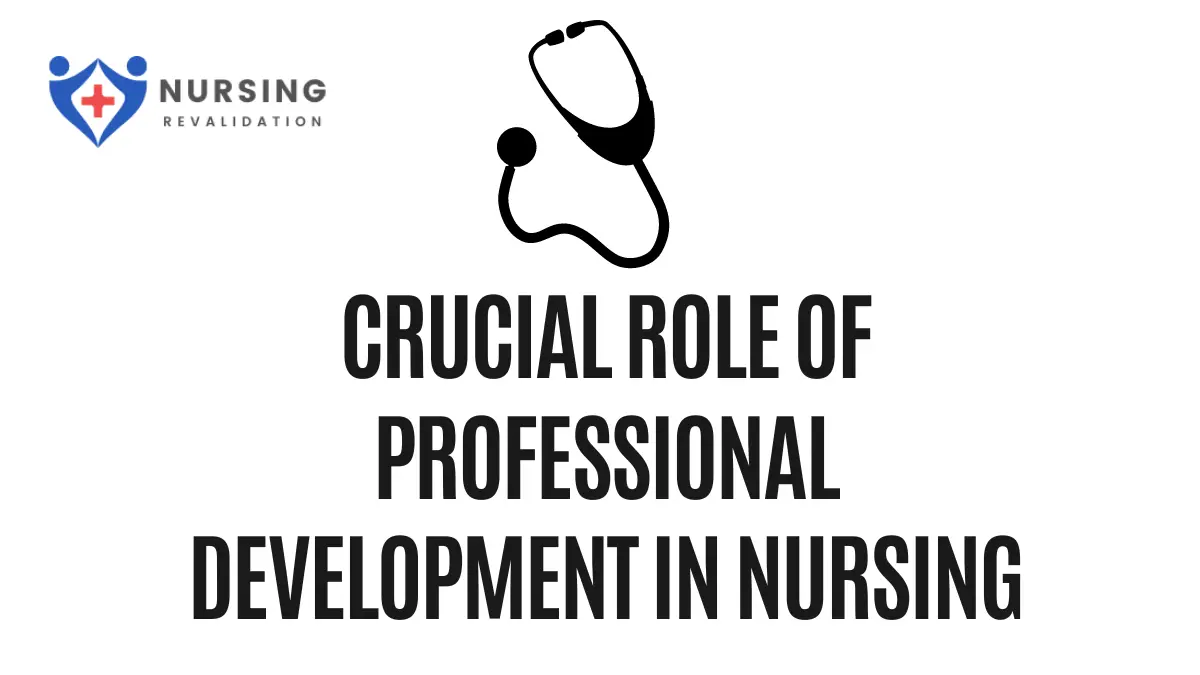In the dynamic landscape of healthcare, nursing stands as the cornerstone of patient care. With the ever-evolving advancements in medical technology, treatments, and protocols, the role of nurses becomes increasingly demanding and complex. In this scenario, continuous professional development (CPD) emerges as not just a choice but a necessity for nurses striving to provide high-quality care. This article delves into the significance of professional development in nursing, exploring its various dimensions and implications.
Understanding Professional Development in Nursing
Definition and Scope
Professional development in nursing encompasses a spectrum of activities designed to enhance knowledge, skills, attitudes, and behaviors related to nursing practice. It goes beyond traditional education and training, encompassing lifelong learning, skill enhancement, and personal growth. CPD in nursing encompasses formal education, such as pursuing advanced degrees or certifications, as well as informal learning through conferences, workshops, self-directed study, and mentorship programs.
Table: Professional Development Activities for Nurses
| Activity | Description |
|---|---|
| Continuing Education | Formal courses, workshops, seminars, and conferences designed to enhance knowledge and skills in specific areas. |
| Certification Programs | Specialized credentials recognizing proficiency in a particular nursing specialty or practice area. |
| Preceptorships | Mentoring programs pairing novice nurses with experienced preceptors to facilitate on-the-job learning. |
| Online Learning Modules | Web-based educational resources offering flexibility and convenience for self-directed learning. |
| Clinical Simulations | Interactive scenarios replicating real-life patient care situations to enhance clinical decision-making skills. |
The Importance of Professional Development in Nursing
1. Advancing Clinical Competence
Continuous learning and skill development are integral to maintaining clinical competence in nursing practice. As healthcare methodologies evolve, nurses must stay abreast of the latest evidence-based practices, treatment modalities, and technological advancements. Professional development equips nurses with the knowledge and skills necessary to adapt to changes effectively and deliver optimal patient care.
2. Fostering Critical Thinking and Problem-Solving Skills
Nursing is a profession that requires quick thinking and effective problem-solving abilities, especially in high-pressure situations. Professional development activities, such as case studies, simulation exercises, and interdisciplinary collaborations, enhance nurses’ critical thinking skills, enabling them to make informed decisions and provide timely interventions.
3. Promoting Patient Safety and Quality of Care
Competent and well-trained nurses are essential for ensuring patient safety and delivering high-quality care. By investing in professional development, healthcare organizations empower their nursing staff to adhere to best practices, minimize errors, and mitigate risks. Continuous learning fosters a culture of excellence where patient outcomes are prioritized and optimized.
4. Enhancing Career Growth and Opportunities
Professional development plays a pivotal role in advancing nurses’ careers and opening up new opportunities for growth and advancement. Obtaining specialized certifications, pursuing higher education, and acquiring new skills broaden nurses’ career prospects, allowing them to assume leadership roles, specialize in niche areas, or transition to advanced practice roles.
Implementing Effective Professional Development Programs
1. Tailoring to Individual Needs
Effective professional development programs recognize that each nurse has unique learning needs and preferences. Offering a diverse range of learning modalities, such as online courses, workshops, hands-on training, and preceptorships, accommodates varying learning styles and preferences.
2. Encouraging Lifelong Learning
Promoting a culture of lifelong learning is essential for sustaining professional growth and development among nursing staff. Encouraging participation in continuing education activities, providing access to learning resources, and recognizing and rewarding professional achievements foster a sense of commitment to ongoing learning and improvement.
Conclusion
In conclusion, professional development is not just an option but a fundamental requirement for nurses striving to excel in their profession. By investing in continuous learning and skill development, nurses enhance their clinical competence, critical thinking abilities, and career prospects while ultimately improving patient outcomes and advancing the nursing profession as a whole.

